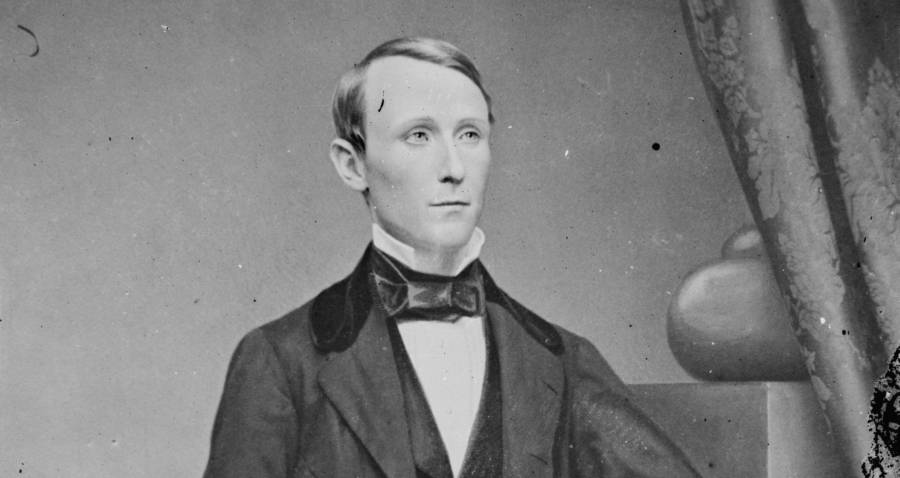Known for his acts of filibustering in Latin American countries, William Walker had managed to seize Baja California and Nicaragua briefly. News of his actions became widespread, and soon, more and more Mexican and American men supported his ambition.
Dr. William Walker took advantage of the ongoing civil war between Granada and Leon in Nicaragua. With his role as a supreme general of the Leon army, the opposition was minimal as he deemed himself the President of Nicaragua.
The Early Life of William Walker
William Walker, born on May 18, 1824, known as the Grey-Eyed Man of Destiny or General Walker, long ambitioned to gain ownership of Central America, specifically Latin American countries.
William Walker’s family was very affluent and distinguished in Nashville, Tennessee, where he was born. Acknowledged for his intellect at a very young age, Walker was a child genius. By the time he reached the age of 14, he had already graduated from the University of Nashville with one of the highest class ranks.
When Walker became 25 years old, he had already attained degrees in Medicine and Law, allowing him to practice both professions legally. Not only that, but Walker also pursued works in the literary career, working both as a publisher and a journalist. And by the time he finished studying, he was already a graduate of the University of Nashville, University of Edinburgh, University of Heidelberg, and the University of Pennsylvania.
It seemed as if he hadn’t time to waste as he remained busy with his jobs and ventures, commonly visiting Europe while living in various places in Pennsylvania, San Francisco, and New Orleans. And albeit he had a short height that measured to 5-foot-2, Walker’s aura was demanding and eye-catching. (Source: Thought Co.)
Walker’s Power-Hungry Venture
Filibustering is the act of seizing smaller countries or states to induce independence. Despite their countless efforts to expand their territories in the 1850s, the government of the United States had no intention to support this practice.
One of the most notorious filibusters during that period was Narciso Lopez, who intended to assault Cuba and gain control of the government. Majorly inspired by Lopez and the concept of filibustering, William Walker became resolute in his goal to take control of the Mexican States Sonora and Baja California.
With the small number of 45 men, Walker briefly seized Baja California’s Capital, La Paz. Walker made himself president and retitled the state as the Republic of Lower California. He utilized his newly acquired platform in administering laws similar to those of Louisiana’s, legalizing enslavement. The news of his conquering became widespread and more men joined Walker’s venture. He then earned the title The Gray-Eyed Man of Destiny.
Walker’s support grew, and in 1854, an estimated number of 400 men had joined him, both Mexican and American, that shared the same ambition. To demotivate the invaders, the Mexican government engaged in minor battles with Walker’s men. Dissatisfaction grew between the men as supplies and resources became scarce.
By May 1854, he had only 35 men left with him. With that, he surrendered to American forces and stood trial before a jury in San Francisco; in less than 10 minutes, Walker was free of all charges.
After a year, Walker gained enough power in Nicaragua with the aid of the Leon faction during the civil war between Granada and Leon. Walker and his army of roughly 300 men successfully captured Granada in October 1855. With his high rank as the army’s supreme general, people made no opposition when he declared himself as the president of Nicaragua.
In less than a year, Walker lost his presidential position due to angering Cornelius Vanderbilt and the majority of the Nicaraguans that opposed his new regulations. (Source: Thought Co.)
